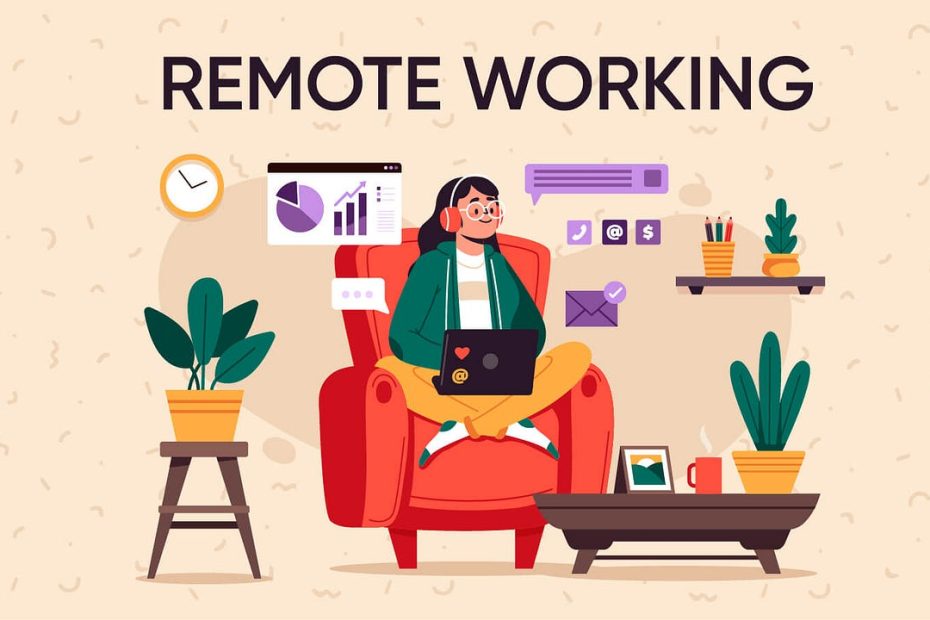The rise of high-speed internet, cloud-based collaboration tools, and the global shift in work culture have created a world where your office can be anywhere—a café, your bedroom, or a beach in Bali (Wi-Fi permitting). Remote work opportunities have opened doors for professionals of all ages and skill sets, offering flexibility, better work-life balance, and access to global job markets. But to truly tap into this landscape, you need to know where to look and how to choose the right platforms that align with your career goals.
Let’s take a deep dive into some of the most trusted and effective platforms for finding remote work, along with a short review of each based on usability, job variety, and reputation.
1. Upwork
Overview: One of the largest freelance marketplaces in the world, Upwork connects professionals with businesses for short- and long-term projects.
Strengths:
- Vast variety of job categories (writing, programming, design, marketing, admin, etc.)
- Secure payment system with hourly tracking or milestone-based payments
- Clear client ratings and feedback history
Weaknesses: - Highly competitive; new freelancers may struggle to land initial jobs
- Service fees start at 10%, which can eat into earnings
Best for: Freelancers looking for ongoing work with international clients.
2. Fiverr
Overview: Known for its “gig” model, Fiverr lets freelancers list specific services starting at $5, though many earn hundreds per project.
Strengths:
- Great for building a portfolio without needing to apply for every job
- Flexible—create packages and set your own pricing
- Easy for beginners to start without prior freelancing history
Weaknesses: - High competition in popular categories
- Requires good marketing skills to stand out
Best for: Creatives, designers, writers, voiceover artists, and niche skill providers.
3. LinkedIn
Overview: More than just a networking site, LinkedIn has become a powerful platform for discovering remote work opportunities.
Strengths:
- Direct connection with recruiters and hiring managers
- Job search filters allow you to specifically find “remote” roles
- Building a personal brand through posts and networking increases visibility
Weaknesses: - Requires consistent activity and profile optimization to be noticed
- Many jobs require multiple application steps outside of LinkedIn
Best for: Professionals seeking full-time or contract remote roles in corporate sectors.
4. FlexJobs
Overview: A premium job board specializing in remote, hybrid, and flexible work.
Strengths:
- All listings are hand-screened to avoid scams
- Wide range of professional-level opportunities
- Offers career coaching and skills testing
Weaknesses: - Requires a paid subscription (around $14.95/month)
Best for: Mid- to senior-level professionals seeking legitimate, high-quality remote positions.
5. Toptal
Overview: An exclusive platform connecting top freelance talent with high-paying clients, especially in tech and design.
Strengths:
- Clients include Fortune 500 companies
- High rates compared to other platforms
- Rigorous vetting means less competition
Weaknesses: - Extremely selective; only top 3% of applicants are accepted
Best for: Highly skilled developers, designers, and finance experts.
6. We Work Remotely
Overview: One of the largest remote work job boards focusing on tech, design, and marketing roles.
Strengths:
- Easy-to-use interface with no clutter
- Strong focus on high-quality, professional remote jobs
Weaknesses: - Mostly tech-focused; fewer opportunities in other fields
Best for: Developers, designers, and marketers looking for permanent remote roles.
7. Remote.co
Overview: Created by the same team behind FlexJobs, Remote.co offers curated remote job listings.
Strengths:
- Includes resources for remote workers and companies
- Simple navigation and easy application process
Weaknesses: - Not as extensive as FlexJobs in variety
Best for: Professionals looking for legitimate, curated roles without a paywall.
8. Guru
Overview: A global freelance platform with a secure workroom feature for collaboration.
Strengths:
- Lower fees compared to some competitors
- Flexible payment options (hourly, milestone, recurring, task-based)
Weaknesses: - Smaller client base compared to Upwork or Fiverr
Best for: Freelancers seeking a balance between competition and earning potential.
9. PeoplePerHour
Overview: A UK-based platform offering freelance projects and hourly work.
Strengths:
- Good for small to medium project work
- Option to post offers and let clients come to you
Weaknesses: - Limited job availability in non-European markets
Best for: Freelancers in writing, design, and marketing targeting European clients.
Final Thoughts
Remote work is no longer a niche—it’s a mainstream career option that allows professionals to redefine their work-life balance, income streams, and geographical boundaries. The right platform for you depends on your skills, career goals, and whether you prefer freelancing or full-time roles.
Take Sarah, a digital marketer from Chicago, for example. After losing her job during an economic downturn, she decided to explore remote work. She began on LinkedIn, connecting with old colleagues and applying for remote positions. Simultaneously, she created service listings on Fiverr for SEO audits and content marketing strategies. Within six months, she had built a stable income working with clients from four different countries. Today, she earns more than she did in her corporate role—without the daily commute or rigid schedule.
